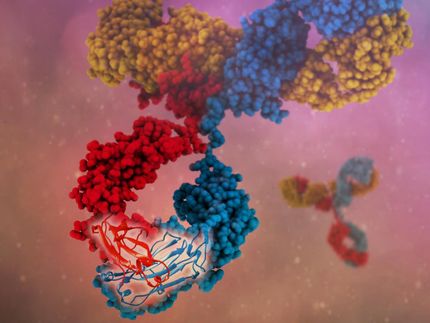MorphoSys Announces Acquisition of Sloning
Combination of Technologies Set to Increase Success Rates in Drug Development
Advertisement
MorphoSys AG announced the acquisition of Sloning BioTechnology GmbH. The transaction will make MorphoSys the sole source of Sloning's state-of-the-art Slonomics technology, which improves the assembly and quality of protein libraries. By integrating Slonomics into its existing antibody technology platform, MorphoSys expects to improve the generation of drug candidates such that one in every two projects started reaches clinical development. The technology will also be used to accelerate the generation of both therapeutic and diagnostic antibodies. Sloning's shareholders received a one-off EUR 19 million cash payment upon signing.
"This acquisition secures our position at the forefront of antibody technology," commented Dr Simon Moroney, Chief Executive Officer of MorphoSys AG. "Sloning's unique technology is the most powerful method available for assembling protein libraries and has been proven to deliver superior products for a range of applications. We plan to use it to generate optimized antibodies much faster than can be done today and also to gain access to antibodies that simply can't be made with current technologies."
Sloning's patented core technology enables the precise construction of protein libraries comprising defined mixtures of amino acids at pre-determined positions with unprecedented speed. This technology opens the way to a new and flexible approach to generating optimized proteins, such as antibodies.
"Current antibody generation technologies use an initial repertoire, which largely determines the properties of the resulting antibody. We intend to use Slonomics as the basis of a fundamentally different approach, which will rapidly test multiple generations of antibodies, equivalent to screening many billions of molecules, to isolate the best possible candidate", stated Dr Marlies Sproll, Chief Scientific Officer of MorphoSys AG. "We expect to shorten the time needed to generate an antibody drug candidate by a third and even more importantly, to increase the proportion of programs reaching clinical development to 50%."
Sloning, founded in 2001, is a private company based in Puchheim, near Munich. The major shareholders are HBM BioVentures, KfW, LBBW Venture Capital and Deutsche Effecten- und Wechsel-Beteiligungsgesellschaft. The company has developed and refined its proprietary technologies through collaborations with a number of pharmaceutical and industrial customers.
Other news from the department business & finance
Most read news
More news from our other portals
See the theme worlds for related content
Topic world Antibodies
Antibodies are specialized molecules of our immune system that can specifically recognize and neutralize pathogens or foreign substances. Antibody research in biotech and pharma has recognized this natural defense potential and is working intensively to make it therapeutically useful. From monoclonal antibodies used against cancer or autoimmune diseases to antibody-drug conjugates that specifically transport drugs to disease cells - the possibilities are enormous

Topic world Antibodies
Antibodies are specialized molecules of our immune system that can specifically recognize and neutralize pathogens or foreign substances. Antibody research in biotech and pharma has recognized this natural defense potential and is working intensively to make it therapeutically useful. From monoclonal antibodies used against cancer or autoimmune diseases to antibody-drug conjugates that specifically transport drugs to disease cells - the possibilities are enormous




















































